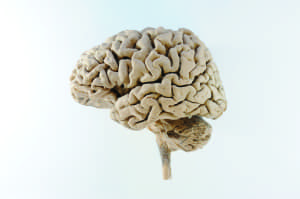Expert Roundtable | September 2015 Hearing Review
Note: This is the seventh article in a seven-part special Expert Roundtable series published in the September 2015 edition of The Hearing Review, guest-edited by Douglas Beck, AuD. For all the articles in this Expert Roundtable, click here.
Chapter 7: Three hot research topics in cognition and hearing healthcare that could fundamentally change our field
At least three research areas related to cognition and hearing loss show great promise for changing how we view hearing loss and apply hearing care solutions: 1) The use of cognition to assess auditory perception; 2) The links between individual differences in cognition and hearing, as well as hearing devices, and 3) The possible causal relationship between hearing and cognition, and whether hearing aids can delay the onset of cognitive decline.
One of the frontiers in audiology is the increasing recognition of the critical connections between the brain and our sense of hearing. Importantly, there are several ways cognition might matter for the person who is hard-of-hearing. This article outlines three hot topics currently under investigation.
1) The Use of Cognition to Assess Auditory Perception
Historically, listening performance was assessed using relatively simple signals (eg, pure-tones) and relatively simple outcome measures (eg, detection tasks). Over the past several decades, there has been an increased understanding that communication in everyday contexts encompasses a number of other processes, including comprehension and the development of appropriate responses to our conversation partners.
The development of more ecologically valid research paradigms is largely founded in cognition. They now recognize the role of linguistic context,1 the presentation of sound from different and moving spatial locations,2 the use of cognitively-based outcome measures,3 and the role of vocal emotion identification.4
2) The Links between Individual Differences in Cognition and Hearing and Hearing Instruments
Broadly speaking, the literature supports the view that individual differences on measures assessing cognition are associated with performance on measures of speech perception in those who are hard-of-hearing5,6 (for a review, see Besser et al7). Further, the literature also supports the view that individuals with better cognitive abilities tend to be able to extract listening benefit from hearing instruments with more complex signal processing strategies than individuals with poorer cognition. Such benefits are observed on a number of tasks, including those assessing speech understanding, memory for spoken language, and perceptual-motor tasks (eg, reaction time). Relationships between individual differences in cognition and hearing instruments have been and continue to be established for different signal-processing technologies, including amplitude compression, frequency compression, and digital noise reduction. Currently, there are a number of important and yet to be resolved issues:
- The identification and evaluation of the set of cognitive processes that are most relevant for performance on different speech tasks. While most work has focused on working memory capacity, there is still much to learn about its role in speech understanding, let alone the roles of other cognitive processes (eg, attention, inhibition, executive function, etc) required for listening and comprehension.
- Precise mapping between performance on tests of cognition and the development of hearing instrument fitting guidelines (eg, establishing appropriate “cut-offs” on tests of cognition).
- A better understanding of which signal-processing strategies in hearing instruments are related (or not) to cognition. To date, most research has focused on the relationship between time constants associated with dynamic range compression and cognition; there is a growing amount of research investigating the relationship between cognition and digital noise reduction. Relatively few articles have investigated the possible relationship between cognition and other signal-processing technologies, including directional microphone processing, frequency compression, and environmental sound classification systems.
- The development and validation of clinically-feasible tests of cognition which can be both administered quickly and interpreted by hearing healthcare practitioners. It should be noted that rather than testing cognition directly, chronological age has been used as a proxy-measure of cognitive abilities. Given the variability in cognition observed in older adult populations, this approach likely leads to inappropriate hearing instrument fittings for older adults with good cognition. Surely, we can do better. Hearing care professionals do not assume audiometric thresholds based on age, and similarly, we should not assume cognitive abilities based on age.
3) The Possible Causal Relationship between Hearing and Cognition, and Whether Hearing Aids Can Delay the Onset of Cognitive Decline

Currently, there are randomized controlled trials underway or in the planning phase that will shed light on these issues. For example, research led by Frank Lin, Terry Chisolm, and Ann Eddins (among others) is investigating whether rehabilitation of hearing loss (eg, with hearing aids) can reduce the risk of developing cognitive decline. Stay tuned—the results from this and other groundbreaking studies should be known by 2021.
References
-
Pichora-Fuller MK, Schneider BA, Daneman M. How young and old adults listen to and remember speech in noise. J Acoust Soc Am. 1995;97:593-608.
-
Singh G, Pichora-Fuller MK, Schneider BA. The time course and cost of misdirecting auditory spatial attention in younger and older adults. Ear Hear. 2013;34(6)[Nov-Dec]:711-721.
-
Ng EHN, Rudner M, Lunner T, Ronnberg J. Noise reduction improves memory for target language speech in competing native but not foreign language speech. Ear Hear. 2015;36:82-91.
-
Dupuis K & Pichora-Fuller MK. Aging affects identification of vocal emotions in semantically neutral sentences. J Sp Lang Hear Res. In press. doi:10.1044/2015_JSLHR-H-14-0256.
-
Gatehouse S, Naylor G, Elberling C. Benefits from hearing aids in relation to the interaction between the user and the environment. Int J Audiol. 2003;42[Suppl 1]:S77-85.
-
Füllgrabe C, Rosen S. Investigating the role of working memory in speech-in-noise identification for listeners with normal hearing. In: van Dijk P, Baskent D, Gaudrain E, de Kleine A. Wagner, Lanting C, eds. Physiology, Psychoacoustics and Cognition in Normal and Impaired Hearing: Springer.
-
Besser J, Koelewijn T, Zekveld AA, Kramer SE, Festen JM. How linguistic closure and verbal working memory relate to speech recognition in noise–A review. Trends Hearing. 2013;17:75-93.
-
Lin FR, Metter EJ, O’Brien RJ, Resnick SM, Zonderman A, Ferrucci L. Hearing loss and incident dementia. Arch Neurol. 2011;68:214-220.
-
Lin FR, Ferrucci L, Metter EJ, An Y, Zonderman AB, Resnick SM. Hearing loss and cognition in the Baltimore Longitudinal Study of Aging. Neuropsychol. 2011;25(6):763-270.
Gurjit Singh, PhD, CASLPO, is senior research audiologist at Phonak Canada and adjunct lecturer at the Department of Speech-Language Pathology at the University of Toronto.
Correspondence can be addressed to HR or Dr Singh at [email protected]
Original citation for this article: Singh G. Why cognition matters for hearing care professionals. Hearing Review. 2015;22(9):28.
This article is one of seven chapters in a series of articles that review the key points addressed during the 2015 AudiologyNOW! session titled “Issues, Advances, and Considerations in Cognition and Amplification.” Follow the links to related chapters by Douglas L. Beck, PhD, Brent Edwards, PhD, Christian Füllgrabe, PhD, Gabrielle Saunders, PhD, Jason Galster, PhD, and Andrea Pittman, PhD.







I have recently experienced a strange and unusual thing, I was in a coma and when I awoke, I (not to sound loony) could hear people talking to me, about me, and commenting on what I was doing, what clothing I was putting on, Etc. Is there any possible way, that someone could place a hearing device, in, on, or around, a person without it being detected?
Hi Karen,
We are very sorry to learn of the head noise/sounds you are hearing since your coma, which must be very alarming for you. It is unclear from your comment if this is a direct result of the coma, or the illness/injury that led to the coma. It is also unclear if you are asking if treatment with a hearing aid or hearing device might diminish the perceived noises? Have you consulted your medical care providers about this? You might ask them for a referral to an ENT specialist & audiologist to determine if you have subjective tinnitus (perceived only by patient), objective tinnitus (perceived by care provider as well), or some neurological damage that is causing the “phantom noise” you are experiencing. In an effort to provide you with resources, here are some links to information on both types of tinnitus, and possible therapies: http://vestibular.org/tinnitus
https://hearingreview.com/?s=Objective+tinnitus